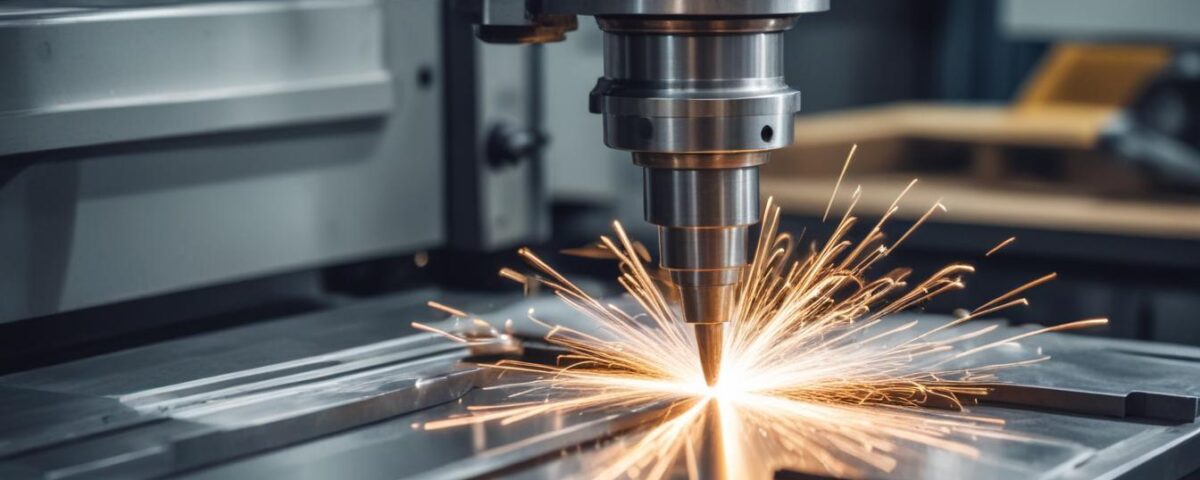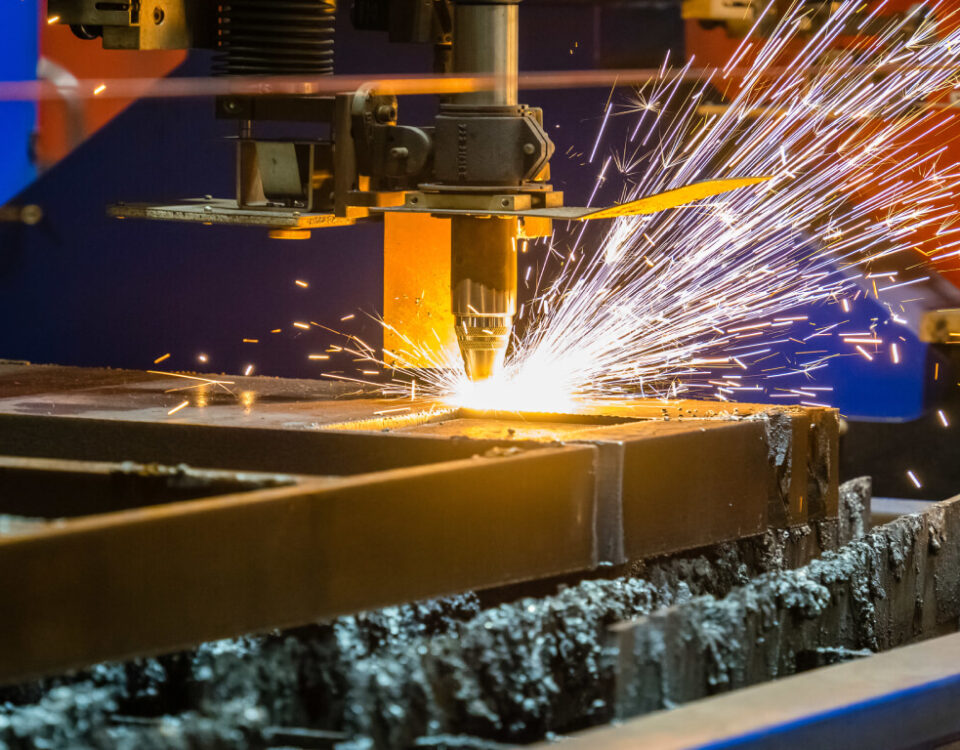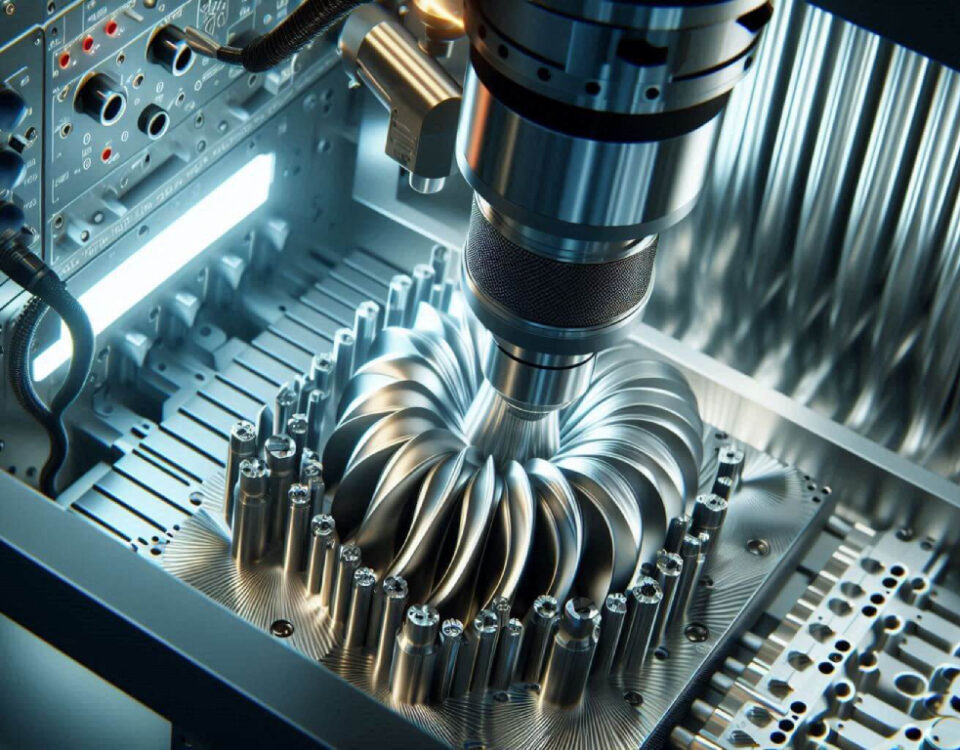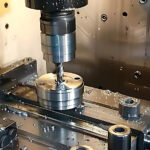
Enhancing CNC Machining Center Efficiency Through Advanced Programming Skills
15 October 2024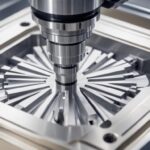
Fabrication Process Optimization: How CNC Machining Leads the Way
22 October 2024CNC (Computer Numerical Control) machining has revolutionized the manufacturing industry by providing precise, automated, and efficient production methods for complex components. This advanced technology utilizes computer software to control machine tools, enabling manufacturers to create intricate parts with remarkable accuracy. As industries increasingly demand high-quality components at competitive prices, CNC machining has become essential for businesses looking to thrive in today’s fast-paced market.
In this competitive landscape, contract machining has emerged as a vital strategy for CNC machining companies. By outsourcing production tasks to specialized contractors, businesses can streamline operations, reduce costs, and focus on their core competencies. This post will explore how contract machining can enhance CNC machining businesses by improving efficiency, expanding production capabilities, and ensuring consistent quality.
What is Contract Machining?
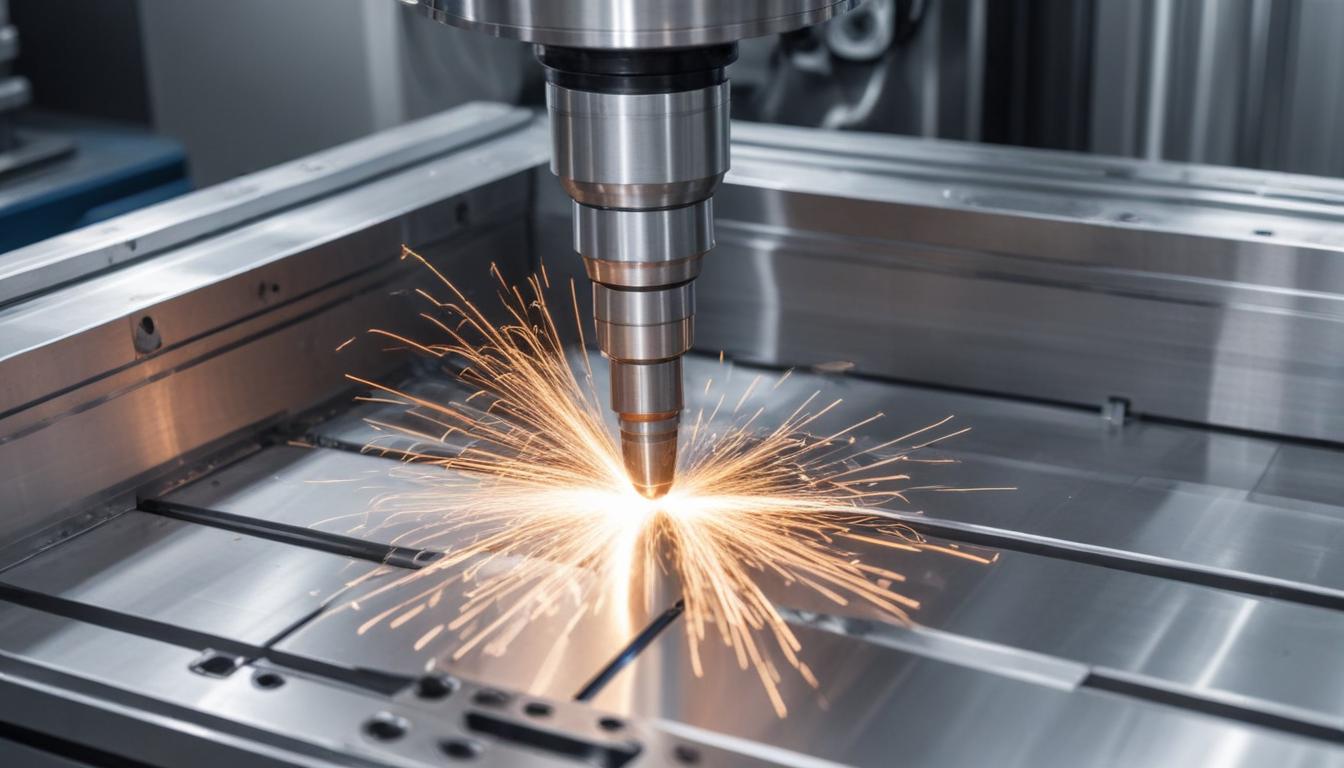
Definition and Explanation of Contract Machining
Contract machining refers to a manufacturing arrangement in which a company hires an external firm to produce components or parts according to specified designs and requirements. This outsourcing strategy allows businesses to focus on their core competencies—such as product design and marketing—while leveraging the expertise and resources of specialized manufacturers.
Contract machining can involve various processes, including CNC machining, turning, milling, and assembly, depending on the capabilities of the contractor. This model not only streamlines production but also provides access to advanced technology and skilled labor without the need for significant investment.
Differences Between Contract Machining and Traditional Machining
The key distinction between contract machining and traditional machining lies in the management and ownership of the manufacturing process. In traditional machining, a manufacturer typically owns the equipment, employs the workforce, and oversees the entire production process in-house. This arrangement grants the manufacturer complete control over quality, timelines, and processes but also requires substantial investment in machinery and labor.
In contrast, contract machining shifts the responsibility of production to an external partner. This allows businesses to outsource specific tasks or entire projects, reducing the burden of maintaining in-house capabilities. While traditional machining offers more direct control over the manufacturing process, contract machining provides flexibility, scalability, and access to specialized expertise that may not be feasible in-house. This shift can be particularly beneficial for companies facing fluctuating demand or seeking to minimize operational costs.
Benefits of Contract Machining for Manufacturers
Contract machining offers numerous advantages for manufacturers, making it an appealing option in today’s competitive landscape. One significant benefit is cost efficiency. By outsourcing production tasks, companies can reduce overhead expenses associated with maintaining a production facility, hiring skilled labor, and investing in machinery. This pay-per-project model allows businesses to allocate resources more effectively, improving overall cash flow and profitability.
Additionally, contract machining provides access to advanced technology and specialized skills without the need for substantial capital investment. Manufacturers can leverage the contractor's expertise and state-of-the-art equipment to produce high-quality components that meet industry standards. This collaboration enhances the manufacturer's competitiveness and ability to adapt to technological advancements.
Moreover, contract machining increases production capacity and flexibility. Manufacturers can quickly scale operations to meet large orders or tight deadlines without the need to invest in additional equipment or workforce. This adaptability allows companies to focus on their core strengths, such as design and innovation, while outsourcing production tasks to reliable partners. Overall, contract machining not only streamlines operations but also mitigates risks, enabling manufacturers to thrive in a rapidly changing market.
The Growing Demand for CNC Machining
Current Trends in the CNC Machining Industry
The CNC machining industry is experiencing significant growth, driven by advancements in technology, increased automation, and evolving customer demands. One of the most prominent trends is the adoption of Industry 4.0, which integrates smart technologies, data analytics, and the Internet of Things (IoT) into manufacturing processes. This digital transformation allows for real-time monitoring and control, enhancing production efficiency and quality. Additionally, the rise of additive manufacturing and hybrid machining techniques is influencing CNC machining practices, enabling manufacturers to produce complex geometries and reduce material waste.
Another key trend is the increasing emphasis on sustainability and environmentally-friendly practices. Manufacturers are seeking ways to minimize their carbon footprint and reduce waste, prompting investments in energy-efficient machinery and processes. Moreover, the demand for high-precision components is rising, leading to the development of advanced CNC machines that can deliver tighter tolerances and superior finishes. As industries continue to evolve, these trends are shaping the future of CNC machining and driving its demand across various sectors.
Industries Driving the Demand for CNC Machining
Several industries are contributing to the growing demand for CNC machining. The aerospace and defense sectors are at the forefront, requiring high-precision components that meet stringent safety and performance standards. CNC machining's ability to produce complex parts with tight tolerances makes it an ideal choice for these applications. Similarly, the automotive industry is experiencing increased demand for CNC machining, driven by the need for lightweight materials, electric vehicle components, and customized parts.
Other sectors, such as medical devices, electronics, and consumer goods, are also leveraging CNC machining for its versatility and efficiency. The medical industry, in particular, demands high-quality, sterile components, making CNC machining essential for producing surgical instruments, implants, and diagnostic equipment. As technology advances and industries evolve, the demand for CNC machining is expected to continue growing, offering manufacturers ample opportunities for expansion.
Importance of Scalability and Flexibility in Production
Scalability and flexibility are crucial factors in the success of CNC machining businesses. As market demands fluctuate, manufacturers must be able to adjust their production capacities quickly to meet customer needs. Contract machining plays a vital role in providing this flexibility, allowing companies to scale operations up or down without the need for significant investments in machinery or labor. This adaptability enables businesses to take on large orders during peak times while reducing costs during slower periods.
Moreover, the ability to pivot and respond to changing market conditions is essential for maintaining a competitive edge. Manufacturers that can quickly adjust their production processes and capabilities are better positioned to meet customer demands, capitalize on emerging trends, and navigate economic uncertainties. By prioritizing scalability and flexibility in their operations, CNC machining businesses can enhance their resilience and long-term sustainability in an ever-evolving industry landscape.
Benefits of Contract Machining for CNC Machining Businesses
Cost Efficiency
One of the primary advantages of contract machining is cost efficiency. By outsourcing production tasks, CNC machining businesses can significantly reduce overhead costs associated with maintaining in-house operations. This includes expenses related to labor, equipment maintenance, and facility management.
Additionally, companies can minimize capital investments in machinery, which can be prohibitively expensive, especially for specialized equipment that may only be used for specific projects. The pay-per-project model inherent in contract machining allows businesses to allocate resources more effectively, paying only for the services they need when they need them, which helps improve cash flow and profitability.
Access to Advanced Technology and Expertise
Contract machining enables CNC machining businesses to utilize cutting-edge machinery without incurring substantial upfront costs. Many contract manufacturers invest in the latest technology and equipment to stay competitive, meaning CNC businesses can leverage these advancements to enhance their product quality.
Moreover, partnering with experienced contractors provides access to specialized skills and knowledge that may not be available in-house. This expertise can be crucial for tackling complex projects or integrating new technologies. By collaborating with skilled partners, businesses can ensure they remain competitive and innovative, adapting to the rapid pace of technological advancements in the manufacturing sector.
Increased Production Capacity
Contract machining significantly boosts production capacity, allowing CNC machining businesses to handle large orders and meet tight deadlines more effectively. By outsourcing production, companies can quickly scale operations up or down based on demand fluctuations without the need to invest in additional machinery or workforce. This flexibility enables businesses to focus on their core competencies, such as design and customer service, while outsourcing production tasks to specialized partners who can manage the complexities of manufacturing. Consequently, this leads to increased efficiency and the ability to deliver products to customers faster, enhancing overall satisfaction and loyalty.
Risk Mitigation
Contract machining also serves as a strategic approach to risk mitigation. By diversifying production sources, CNC machining businesses can spread operational risks and reduce their dependency on a single facility or workforce. This approach protects against potential disruptions, such as equipment failures or labor shortages.
Additionally, outsourcing production can help minimize financial risks associated with large capital investments in machinery and facilities, as companies are not locked into costly equipment purchases that may become obsolete. The flexibility to respond to market changes without significant losses allows businesses to navigate economic fluctuations more adeptly, ensuring long-term stability and growth.
How to Choose the Right Contract Machining Partner
Identifying Your Needs
Before embarking on the search for a contract machining partner, it is essential to clearly identify your specific needs. This process begins with assessing the requirements of your projects, including the types of components you need produced, their complexity, and the desired quality standards. Understanding these factors will help you communicate your expectations effectively to potential partners.
Additionally, consider the volume of parts required and any deadlines that must be met. By establishing these parameters upfront, you can narrow down your options and focus on partners that can fulfill your specific project requirements.
Evaluating Potential Partners
Once you have identified your needs, the next step is to evaluate potential contract machining partners. There are several key factors to consider when selecting the right fit for your business. Firstly, assess the experience and reputation of each candidate. Look for companies that have a proven track record in your industry and have successfully handled projects similar to yours.
Furthermore, verify their certifications and compliance with relevant industry standards, as this ensures they adhere to quality and safety protocols. Additionally, examine the technology and equipment they employ. A partner equipped with advanced machinery and up-to-date technology is better positioned to deliver high-quality components efficiently and consistently.
Establishing Clear Communication
Clear communication is paramount when working with a contract machining partner. Establishing transparency from the outset can help build a strong working relationship and prevent misunderstandings down the line. Set expectations and goals together, ensuring both parties are aligned on project timelines, quality standards, and deliverables.
Regular updates and feedback mechanisms are also crucial for maintaining open lines of communication throughout the production process. This allows for timely adjustments if issues arise and fosters a collaborative environment where both parties can work towards achieving mutual success. By prioritizing communication, you can enhance the effectiveness of your partnership and ensure a smoother production experience.
The Role of Quality Control in Contract Machining
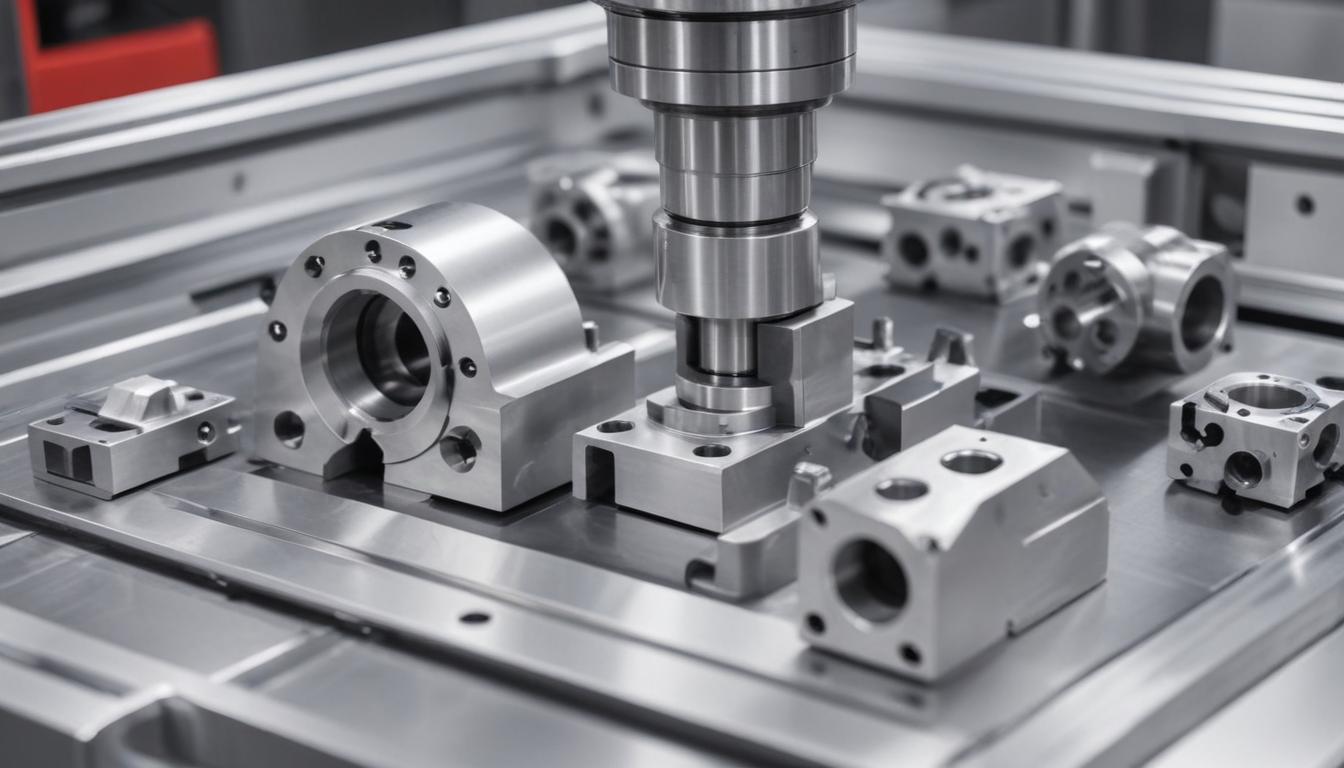
Importance of Quality Standards in CNC Machining
Quality standards are paramount in CNC machining, as they directly influence the performance, safety, and reliability of manufactured components. In industries such as aerospace, automotive, and medical devices, adherence to strict quality standards is essential to meet regulatory requirements and customer expectations. Poor quality can lead to product failures, safety hazards, and significant financial losses, making effective quality control a critical aspect of the manufacturing process. By maintaining high-quality standards, CNC machining businesses can build trust with clients, enhance their reputation, and foster long-term partnerships.
How to Ensure Quality When Outsourcing
When outsourcing production through contract machining, it is crucial to implement strategies to ensure the quality of the manufactured components. Firstly, conducting thorough research on potential partners can help identify those with a strong commitment to quality control. Look for partners who have established quality management systems and a culture of continuous improvement. Additionally, clearly communicate your quality expectations and specifications at the outset of the partnership, ensuring that both parties understand the required standards.
Regular communication and collaboration with the contract manufacturer throughout the production process can also play a vital role in maintaining quality. Scheduling regular inspections and audits, both at the contractor's facility and during the production run, can help catch potential issues early. Furthermore, utilizing quality assurance tools and methodologies, such as Statistical Process Control (SPC) and Failure Mode and Effects Analysis (FMEA), can help identify areas for improvement and minimize defects.
Key Quality Control Measures and Certifications to Look For
When selecting a contract machining partner, it is important to consider the quality control measures and certifications they have in place. Key quality control measures may include inspection processes, testing protocols, and traceability systems to ensure that every component meets the required specifications. Look for partners that employ advanced inspection technologies, such as coordinate measuring machines (CMM) and non-destructive testing (NDT), to verify the accuracy and integrity of their products.
Certifications are another critical aspect of quality assurance. ISO 9001 is a widely recognized standard that demonstrates a commitment to quality management and continuous improvement. Industry-specific certifications, such as AS9100 for aerospace or ISO 13485 for medical devices, can also provide additional assurance of a partner's quality capabilities. By prioritizing quality control measures and seeking out reputable certifications, CNC machining businesses can mitigate risks and ensure that their outsourced components meet the highest standards of quality and performance.
Best Practices for Integrating Contract Machining into Your Business
Developing a Clear Strategy for Outsourcing
To effectively integrate contract machining into your CNC machining business, it is essential to develop a clear and comprehensive outsourcing strategy. This strategy should begin with a thorough analysis of your current production capabilities and limitations, identifying areas where outsourcing can provide the most value. Define your objectives for contract machining, whether it's to reduce costs, increase production capacity, or access specialized expertise. Having a clear understanding of your goals will help you identify the right partners and make informed decisions throughout the process.
Additionally, establish criteria for selecting contract machining partners, taking into account factors such as experience, capabilities, and quality standards. Create a detailed plan outlining the specific components or projects you wish to outsource, including timelines, quality requirements, and communication protocols. By laying out a clear strategy for outsourcing, you can ensure a smoother transition and maximize the benefits of contract machining for your business.
Building Strong Relationships with Partners
Building strong relationships with your contract machining partners is crucial for long-term success. Establishing a foundation of trust and open communication can significantly enhance collaboration and project outcomes. Take the time to understand your partner’s capabilities, strengths, and weaknesses, and ensure that both parties are aligned in their goals and expectations. Regular meetings and updates can facilitate this process, allowing you to discuss progress, address challenges, and share feedback.
Additionally, fostering a collaborative environment can lead to innovative solutions and improved processes. Encourage your partners to provide input on design and production methods, as their expertise may lead to more efficient manufacturing and enhanced product quality. By nurturing strong relationships, you can create a mutually beneficial partnership that supports both parties in achieving their objectives.
Monitoring and Evaluating Performance Regularly
To ensure the success of your contract machining endeavors, it is vital to monitor and evaluate the performance of your partners regularly. Establish key performance indicators (KPIs) to measure factors such as quality, delivery timelines, and responsiveness. By tracking these metrics, you can gain valuable insights into your partner’s performance and identify areas for improvement.
Regular performance reviews should be conducted to discuss the results of these evaluations and address any concerns. Openly sharing feedback, both positive and constructive, fosters a culture of continuous improvement and reinforces the commitment to quality. Additionally, be proactive in addressing any issues that arise, whether they pertain to quality discrepancies, delivery delays, or communication challenges. By maintaining a focus on performance monitoring and evaluation, you can ensure that your contract machining relationships remain productive and beneficial for your CNC machining business.
Conclusion
In today's competitive manufacturing landscape, contract machining offers CNC machining businesses a strategic advantage that can lead to increased efficiency, cost savings, and enhanced product quality. By outsourcing production tasks to specialized partners, companies can access advanced technology, specialized expertise, and scalable production capabilities without the need for significant capital investment. This flexibility allows businesses to respond swiftly to market demands, manage operational risks, and maintain a focus on their core competencies, ultimately driving growth and profitability.
As you consider integrating contract machining into your operations, remember the importance of selecting the right partners, establishing clear communication, and prioritizing quality control. By following best practices for outsourcing and fostering strong relationships with contract manufacturers, you can create a collaborative environment that benefits both parties. Embracing contract machining not only positions your business to thrive in a rapidly evolving industry but also empowers you to meet the ever-changing needs of your customers with confidence and agility.

